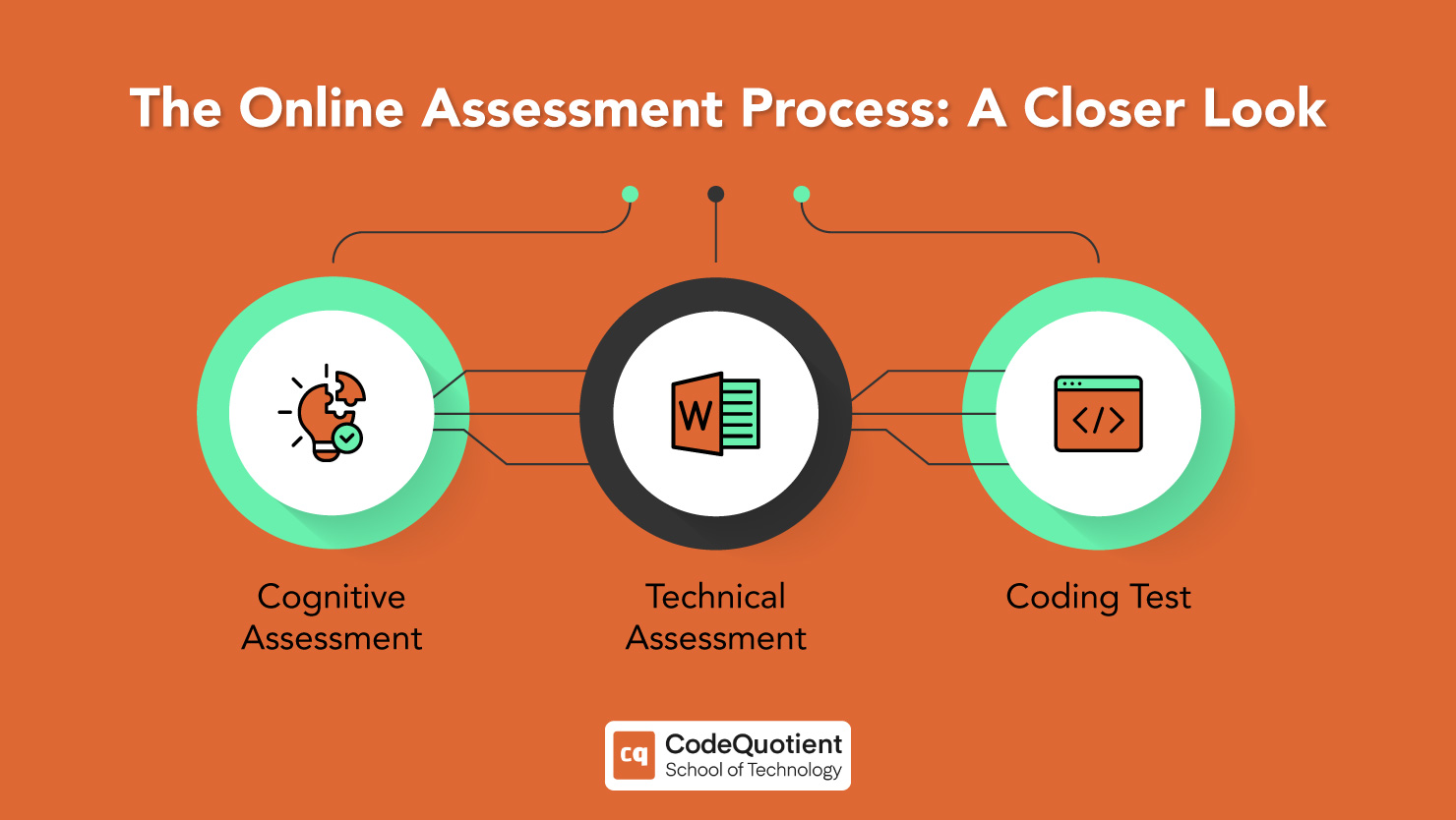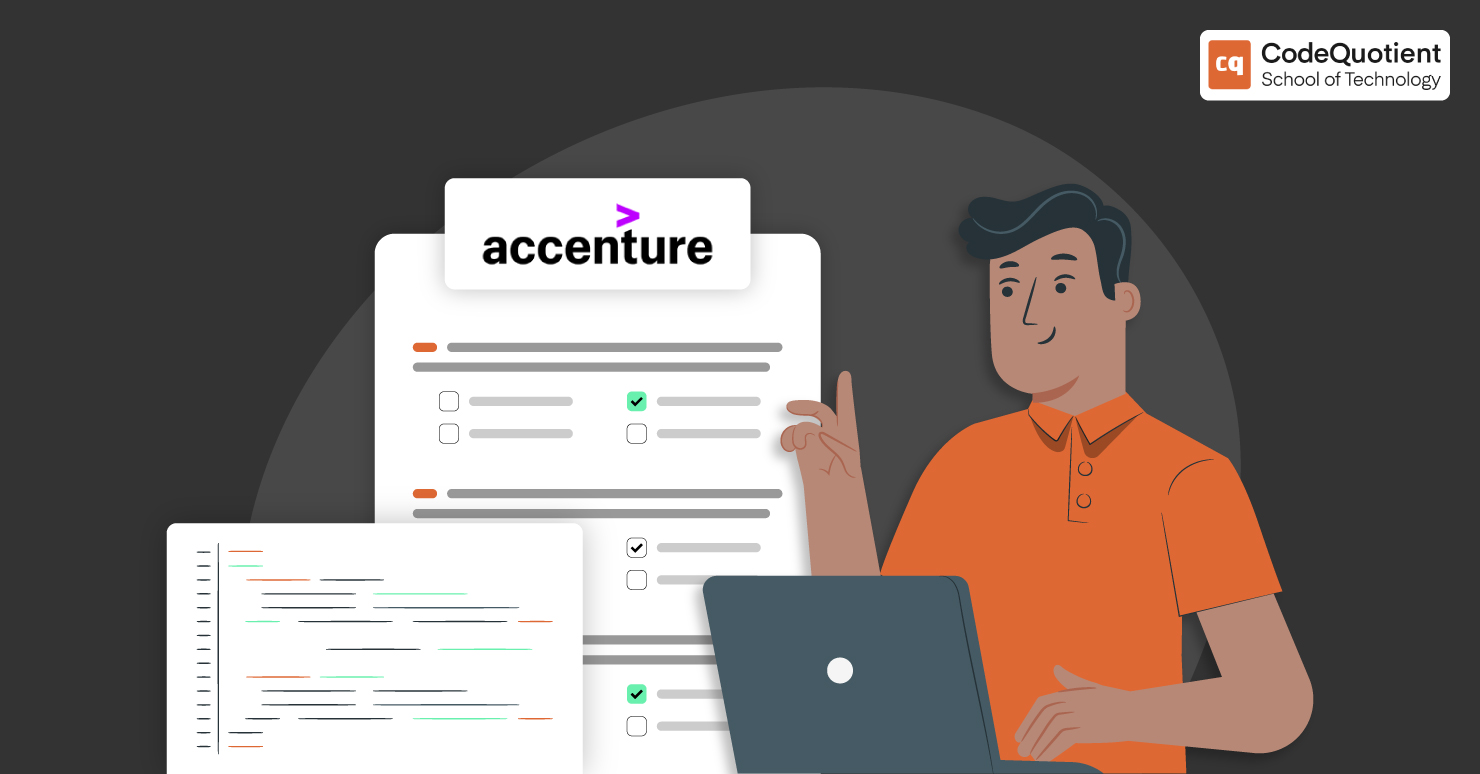Landing a job at a prestigious company like Accenture is a dream for many aspiring professionals.
Accenture has recruited 162,000 people from all over the world over the last year.
The path to success might be allocated to those who are prepared to pass a very strictly defined selection program that requires as much knowledge, experience, and other skills as possible. Realising the Accenture exam pattern is the fundamental requirement for successful preparation because it can increase the chances of winning.
This guide will walk you through the steps of the Accenture exam pattern, providing you with all the necessary tips and tricks. Additionally, it will help you successfully complete the whole hiring process.
The Accenture Exam Pattern: An Overview
The Accenture exam pattern comprises several stages, each designed to assess different aspects of a candidate’s abilities. The process typically begins with an Online Assessment Test, followed by subsequent rounds such as a Communication Assessment and Interview rounds.
The Online Assessment Process: A Closer Look

Now, let’s delve dive into this process:
1. Cognitive Assessment
The Cognitive Assessment evaluates a candidate’s analytical and reasoning abilities, which are essential for problem-solving and decision-making in a professional environment. This section consists of four components:
- Cognitive Ability: Assesses problem-solving skills, logical reasoning, and numerical aptitude.
- Abstract Reasoning: Tests the ability to identify patterns, relationships, and connections between abstract concepts.
- Critical Reasoning: Evaluates the capacity to analyse information, draw logical conclusions, and make informed decisions.
- Verbal Reasoning: Measures language proficiency, comprehension, and the ability to communicate effectively.
To excel in the cognitive assessment, try to practise regularly using online resources and sample tests. Developing a strong foundation in logical reasoning, numerical abilities, and language skills is essential.
2. Technical Assessment
The Technical Assessment is specifically designed for candidates applying for technical roles within Accenture. This section evaluates a candidate’s proficiency in various technical domains, covering three main areas:
- Common Applications in MS Word: Assesses candidates’ familiarity with Microsoft Word and its advanced features.
- Pseudocode: Evaluates the ability to understand and interpret pseudocode, a valuable skill for software developers and programmers.
- Network Security and Cloud: Tests candidates’ knowledge of network security principles, cloud computing concepts, and their applications.
Technical Assessment is especially advisable for candidates who are not well-versed in the current Microsoft Office applications, including the latest innovations in the program.
Then, make use of the advanced features available in it. Furthermore, create a customised study plan based on the topics in which you need improvement by reading online resources and participating in practice tests.
3. Coding Test
The Coding Test is a crucial component of the Accenture selection process, as it directly assesses a candidate’s programming skills and problem-solving abilities. This section typically presents candidates with two coding problems that can range from algorithm implementation to data structure manipulation.
Tip: To excel in the Coding Test, it is essential to have a strong foundation in programming languages, data structures, and algorithms. Practising coding challenges on different platforms can help improve problem-solving skills and familiarity with different coding paradigms.
Next Steps: Subsequent Assessment Stages
After successfully clearing the Online Assessment, you move on to the subsequent rounds of the selection process.
1. Communication Assessment
Effective communication is a crucial skill in any professional setting, as it facilitates collaboration, problem-solving, and effective teamwork. The Communication Assessment is designed to evaluate a candidate’s ability to express themselves clearly and concisely, both in written and verbal formats.
Components of the Communication Assessment
- Written Exercises
- Essay writing
- Email drafting
- Oral Exercise
- Group discussions
Assessment Criteria
- Ability to convey thoughts coherently
- Use of appropriate language and tone
- Active listening and responding to others
You can practice writing concise and well-structured responses on various topics to prepare for the Communication Assessment. Additionally, participating in mock group discussions or presentations can help improve verbal communication skills and confidence.
2. Interview Rounds
The interview rounds at Accenture typically consist of two main components: Technical interviews and HR interviews.
Technical Interviews primarily evaluate the depth and applicability of the interviewee’s competence related to their job or field selection. They will give a chance to resolve some coding issues, tackle technical aspects in problem-solving scenarios, and serve as a basis for industry-specific subjects and technologies.
The second category of interviews is HR Interviews. They contain information about the personality of an interviewee, with a cultural fit, the level of compliance with the job, and the whole organisation.
Usually, a candidate is expected to answer problem-solving and specific situation questions, as well as talk about his/her goals in a career, strengths, and weaknesses.
Tech interviews require the candidate to have a good, updated background in the relevant technology, specific programming languages, and the latest modern development practices.
Practising coding challenges, investigating common IT queries, and remaining updated on current tech-related issues are no less than gold.
In addition, practising effective communication is of utmost importance, meaning that the candidate’s communication style, body language, and voice tone must be appropriate.
3 Tips for Navigating the Accenture Exam Pattern
Here are some additional tips for you:
1. Time Management Strategies
Effective time management is crucial during the Accenture selection process, as many assessments have strict time limits. It is advisable to practice with timed mock tests and develop strategies for prioritising and allocating time effectively during the actual assessments.
2. Importance of Practice Tests
Regular practice with mock tests and sample questions can significantly improve a candidate’s performance and confidence during the actual assessments. Practice tests not only help reinforce concepts but also provide an opportunity to identify areas for improvement and develop effective test-taking strategies.
3. Utilising Official Resources for Accenture Exam Pattern
Accenture provides various official resources, including practice tests, study guides, and webinars, to help candidates prepare for the selection process.
Additionally, engaging with online community forums and connecting with current or former Accenture employees can provide valuable insights and tips for effectively navigating the exam pattern.
Pave the Way for a Successful Career!
Navigating the Accenture exam pattern can seem daunting, but with the right preparation and mindset, it is a challenge that can be overcome.
By understanding the different assessment stages, developing a strategic approach, and consistently practising, candidates can increase their chances of success and showcase their skills and potential to Accenture.
At CodeQuotient, we understand the importance of comprehensive preparation for technical roles. Our Software Engineering Bootcamp is designed to equip you with advanced software engineering concepts through hands-on experiences and real-world applications in just 3 months.
Our program ensures you develop the necessary skills and knowledge to excel in technical assessments like the one at Accenture.
Get in touch with us today to learn more about how our program can help you navigate the Accenture exam pattern with confidence.




